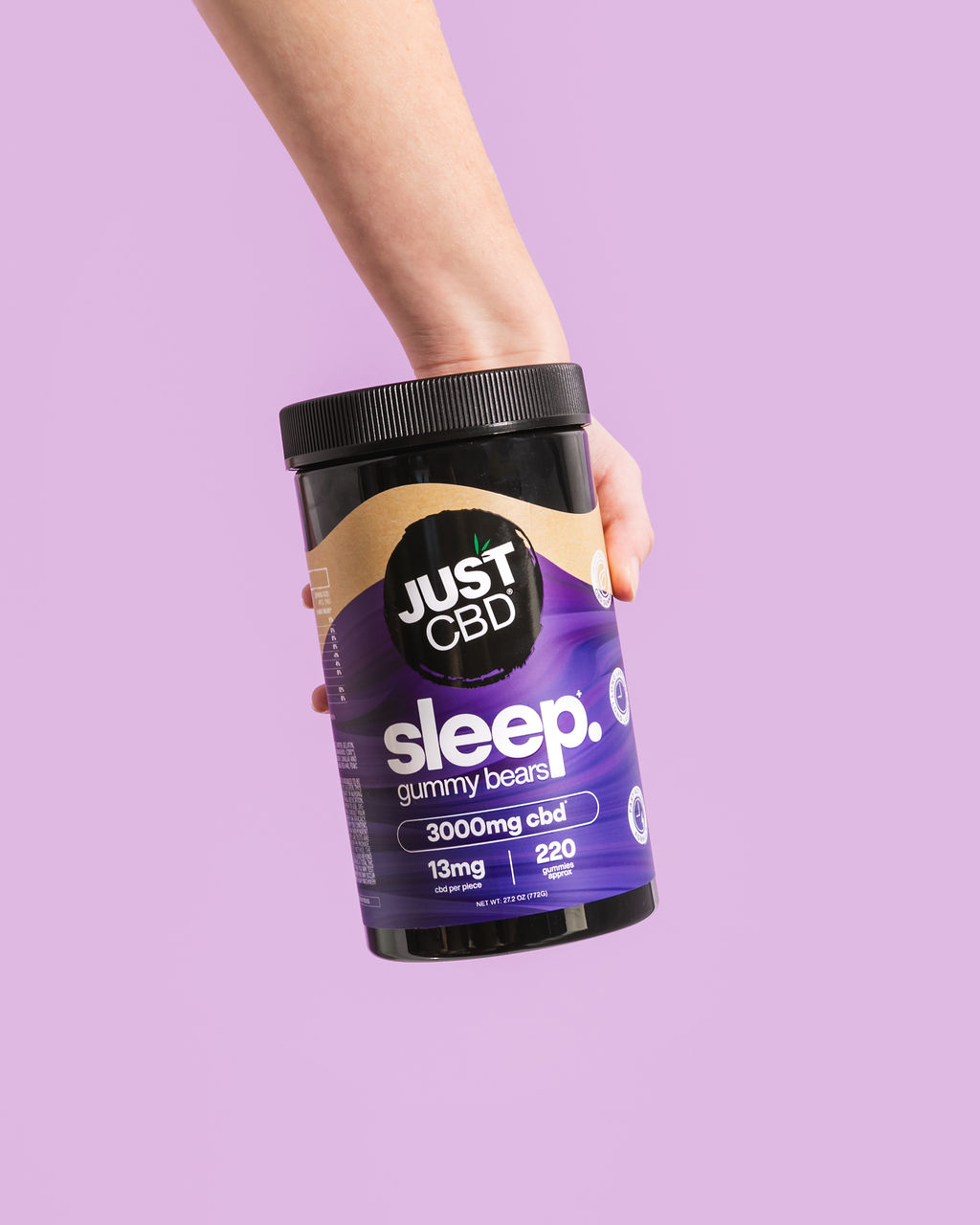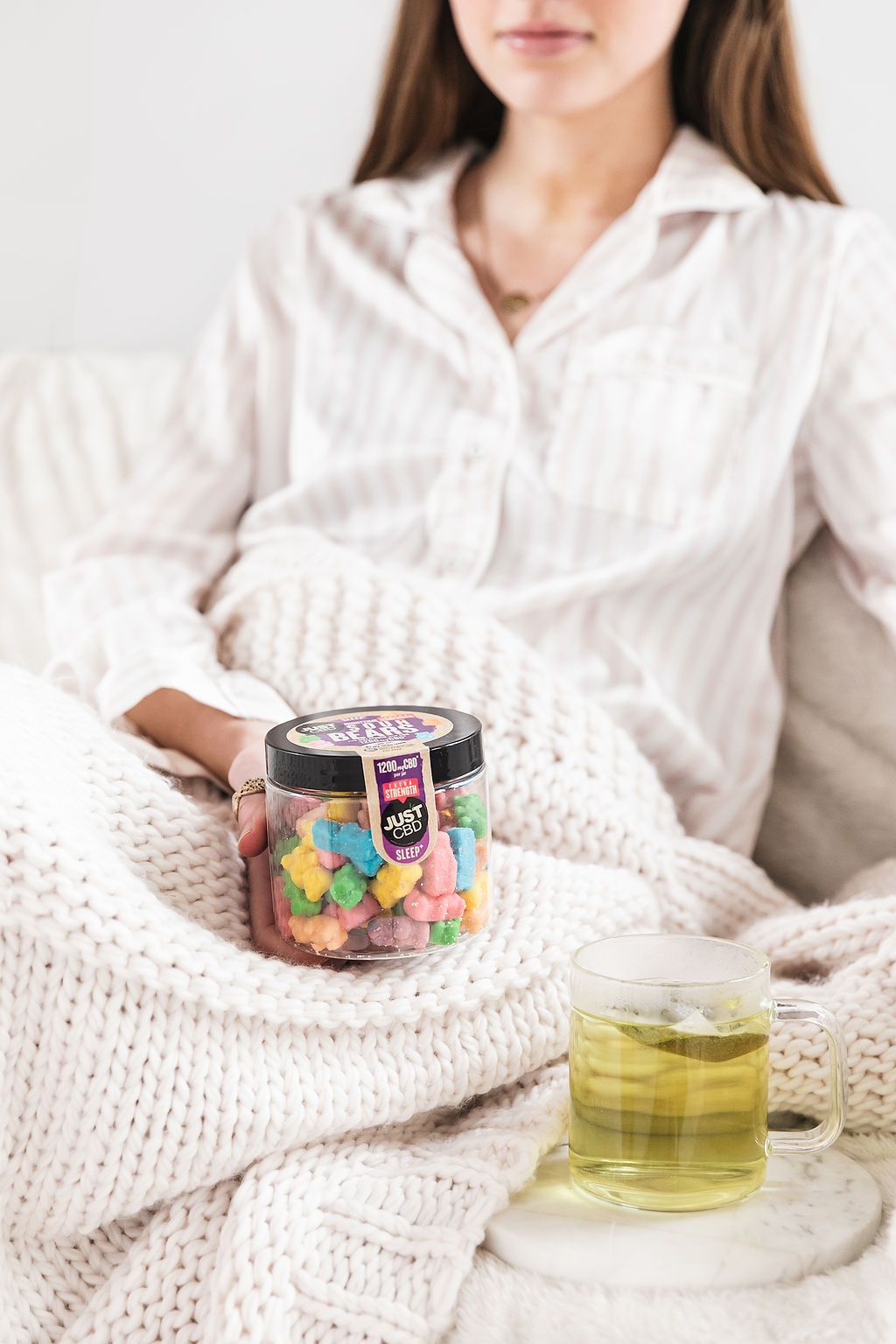Kratom Gummies For Anxiety Relief: Can They Replace Prescription Meds?
Potential Benefits of Kratom Gummies for Anxiety
For individuals struggling with anxiety, finding effective and manageable relief can be a challenging journey. Kratom, a tropical tree native to Southeast Asia, has gained attention for its potential therapeutic benefits, including anxiety reduction. Recently, kratom gummies have emerged as a popular delivery method, offering a convenient and discreet way to experience the purported effects of kratom.
Mechanism of Action
Kratom’s potential anxiety-reducing effects are thought to stem from its interaction with opioid receptors in the brain. Kratom contains alkaloids, specifically mitragynine and 7-hydroxymitragynine, which bind to these receptors. This binding may lead to a modulation of neurotransmitters like serotonin and dopamine, both crucial players in regulating mood and anxiety.
While research on kratom’s efficacy for anxiety is limited and further studies are needed, some users report experiencing reduced anxiety symptoms after consuming kratom gummies. They suggest that the gummy format allows for quicker absorption and a more controlled dosage compared to traditional methods like chewing leaves or brewing tea.
Studies and Research on Kratom for Anxiety
However, it’s important to note that while anecdotal evidence exists, scientific research on the effectiveness of kratom gummies specifically for anxiety is limited. More rigorous clinical trials are needed to confirm these claims and determine optimal dosages and potential side effects.
- A small 2014 study published in the journal “Phytomedicine” explored the anxiolytic (anxiety-reducing) effects of kratom extracts in rats, suggesting a potential therapeutic role.
- More recent studies have investigated kratom’s interaction with opioid receptors and its impact on neurotransmitters related to anxiety, further supporting the possibility of its efficacy.
Despite the promising preliminary findings, it is crucial for individuals considering using kratom gummies for anxiety to consult with their healthcare provider. They can offer personalized advice, assess potential risks and benefits, and guide them toward safe and appropriate treatment options.
User Experiences and Testimonials
Some users report experiencing reduced anxiety symptoms after consuming kratom gummies, citing the gummy format’s advantages in terms of quicker absorption and controlled dosage compared to traditional methods.
They describe feeling calmer, less overwhelmed by worry, and better able to manage everyday stressors.
Testimonials often emphasize the potential for kratom gummies to provide a natural alternative to prescription medications for anxiety relief.
However, it’s important to remember that these experiences are anecdotal and should not be taken as medical advice.
Dosage and Administration
Determining the appropriate dosage of kratom gummies for anxiety relief is crucial for achieving desired effects while minimizing potential risks. Factors influencing dosage include individual body weight, tolerance level, and the severity of anxiety symptoms. It’s essential to start with a low dose and gradually increase it as needed, monitoring for any adverse reactions or changes in symptom severity.
Recommended Dosage for Anxiety
Determining the appropriate dosage of kratom gummies for anxiety relief is crucial for achieving desired effects while minimizing potential risks. Factors influencing dosage include individual body weight, tolerance level, and the severity of anxiety symptoms. It’s essential to start with a low dose, typically around 1-2 grams of dried kratom equivalent, and gradually increase it as needed, monitoring for any adverse reactions or changes in symptom severity.
As a general guideline, some users report finding relief at doses between 3-5 grams of dried kratom equivalent per day. However, it’s important to note that individual responses to kratom can vary widely, and what works for one person may not work for another.
Closely monitoring your body’s response to different dosages is crucial for finding the optimal dose for your individual needs.
Forms of Kratom Gummies Available
Kratom gummies come in various strengths and flavors, offering a range of options to suit individual preferences and needs.
Common potencies include 10 mg, 25 mg, and 50 mg of kratom alkaloids per gummy.
Flavors commonly found in kratom gummies include fruit-based varieties such as strawberry, mango, and pineapple, as well as other options like watermelon and grape.
Factors Influencing Dosage
Dosage and administration are crucial considerations when using kratom gummies for anxiety relief. The appropriate dose varies depending on individual factors such as body weight, tolerance level, and the severity of symptoms.
It is important to start with a low dose and gradually increase it until desired effects are achieved while monitoring for any adverse reactions.
Generally, starting with 1-2 grams of dried kratom equivalent is recommended. Some users find relief at doses between 3-5 grams per day, but individual responses can vary widely.
Closely observing your body’s response and adjusting the dosage accordingly is essential for finding the optimal dose for you.
Risks and Side Effects
While kratom gummies offer a potentially convenient and discreet way to manage anxiety symptoms, it’s crucial to be aware of potential risks and side effects associated with their use. These can range from mild discomfort like nausea and dizziness to more serious concerns such as dependence and withdrawal symptoms.
Potential Adverse Effects of Kratom
Potential adverse effects of kratom can include nausea, vomiting, constipation, itching, sweating, increased heart rate, and dizziness. In higher doses or with prolonged use, kratom can lead to more serious side effects like seizures, liver damage, and respiratory depression.
Kratom can also interact with other medications, including opioids, antidepressants, and blood thinners. Combining kratom with these substances can increase the risk of adverse effects or reduce the effectiveness of the medications.
Individuals with pre-existing medical conditions, such as liver disease, heart problems, or mental health disorders, should exercise extra caution when considering kratom use, as it may exacerbate existing symptoms.
Interactions with Other Medications
It’s important to note that kratom can interact with other medications you may be taking. These interactions can potentially lead to reduced effectiveness of your medications or increase the risk of adverse side effects.

Kratom can interact with opioids, antidepressants, blood thinners, and other medications. If you are considering using kratom gummies, it is crucial to consult with your doctor or pharmacist to ensure there are no harmful interactions with your current medications.
Additionally, individuals with pre-existing medical conditions, such as liver disease, heart problems, or mental health disorders, should exercise extra caution when considering kratom use. Kratom may worsen existing symptoms or lead to complications.
Withdrawal Symptoms
Kratom gummies offer a potentially convenient and discreet way to manage anxiety symptoms, but it’s crucial to be aware of potential risks and side effects associated with their use. These can range from mild discomfort like nausea and dizziness to more serious concerns such as dependence and withdrawal symptoms.
- Potential adverse effects of kratom can include nausea, vomiting, constipation, itching, sweating, increased heart rate, and dizziness.
- In higher doses or with prolonged use, kratom can lead to more serious side effects like seizures, liver damage, and respiratory depression.
- Kratom can also interact with other medications, including opioids, antidepressants, and blood thinners. Combining kratom with these substances can increase the risk of adverse effects or reduce the effectiveness of the medications.
- Individuals with pre-existing medical conditions, such as liver disease, heart problems, or mental health disorders, should exercise extra caution when considering kratom use, as it may exacerbate existing symptoms.
Withdrawal symptoms can occur if you stop using kratom after prolonged use. These symptoms can include irritability, anxiety, sweating, muscle aches, and insomnia.
It is important to taper off kratom gradually under the guidance of a healthcare professional if you are considering discontinuing its use.
Legal Status and Regulations
The legal status and regulations surrounding kratom vary widely around the world. In some countries, kratom is completely prohibited, while in others it is legal but subject to certain restrictions. The United States federal government currently classifies kratom as a substance with no currently accepted medical use and a high potential for abuse.
Despite this classification, individual states within the US have adopted diverse approaches to kratom regulation. Some states have banned kratom outright, while others allow its sale but impose restrictions on potency or labeling.
Kratom Legality in Different Regions
The legal status and regulations surrounding kratom vary widely around the world.
- In some countries, kratom is completely prohibited.
- In others, it is legal but subject to certain restrictions.
The United States federal government currently classifies kratom as a substance with no currently accepted medical use and a high potential for abuse.
Despite this classification, individual states within the US have adopted diverse approaches to kratom regulation. Some states have banned kratom outright, while others allow its sale but impose restrictions on potency or labeling.
Regulatory Oversight and Safety Concerns
The legal status and regulations surrounding kratom vary widely across different jurisdictions. In some countries, kratom is entirely prohibited due to concerns regarding its potential for abuse and adverse effects. Others have adopted a more lenient approach, allowing its sale and consumption while implementing restrictions on potency, labeling, or distribution.
The United States federal government currently classifies kratom as an unregulated substance with no currently accepted medical use and a high potential for abuse. This classification places it under the purview of the Drug Enforcement Administration (DEA), which has the authority to regulate its production, distribution, and possession.
However, individual states within the US have taken divergent paths in terms of kratom regulation. Some states have enacted outright bans on kratom, deeming it too risky for public consumption. Others allow kratom sales but impose restrictions such as limits on potency, mandatory labeling requirements, or age restrictions.
This patchwork of state-level regulations creates a complex legal landscape for kratom users and sellers alike. Staying informed about the specific laws governing kratom in your jurisdiction is crucial to avoid potential legal consequences.
The lack of comprehensive federal regulations surrounding kratom has raised concerns among public health officials regarding product safety, quality control, and consumer protection.
Given its increasing popularity, a clear and consistent regulatory framework for kratom at the federal level is essential to ensure the safety and well-being of consumers while allowing for responsible research and potential therapeutic applications.
Comparison to Prescription Anxiety Medications
Kratom has emerged as a popular alternative for individuals seeking relief from anxiety. Proponents suggest that kratom gummies, a convenient delivery method, can effectively reduce anxiety symptoms. However, it’s important to compare kratom gummies with traditional prescription medications for anxiety.
Effectiveness and Duration of Relief

Kratom gummies offer a potential avenue for anxiety relief, but they should be carefully weighed against established prescription medications.
- Prescription medications for anxiety, such as selective serotonin reuptake inhibitors (SSRIs) and benzodiazepines, are rigorously tested and regulated by regulatory bodies like the FDA.
- They have proven efficacy in treating a range of anxiety disorders and have established safety profiles based on extensive clinical trials.
While kratom gummies may provide some symptom relief for certain individuals, their long-term effects and potential for dependence are not as well understood.
- Prescription medications often offer more predictable and consistent outcomes due to their controlled dosages and established mechanisms of action.
- They can be tailored to individual needs under the guidance of a healthcare professional.
Moreover, prescription medications are generally covered by insurance plans, making them more accessible financially for many individuals.
It’s crucial to consult with a healthcare provider to discuss the best treatment options for anxiety. They can assess individual needs, medical history, and potential risks and benefits of both kratom gummies and prescription medications.
Side Effects Profile
Compared to prescription anxiety medications, kratom gummies have a less established safety and efficacy profile. Prescription medications like SSRIs and benzodiazepines are rigorously tested and regulated by organizations like the FDA, with proven effectiveness and well-documented side effects.
Kratom’s long-term effects and potential for dependence are still under investigation, and its regulation varies widely depending on location.
While some users report experiencing anxiety relief from kratom gummies, these experiences are anecdotal and not supported by robust scientific evidence.

Prescription medications typically offer more predictable and consistent outcomes due to controlled dosages and established mechanisms of action, making them a safer and potentially more effective choice for managing anxiety.
Cost and Accessibility
Compared to prescription anxiety medications, kratom gummies present a less explored path for anxiety relief. While some individuals find solace in kratom gummies, their efficacy lacks the robust scientific backing of prescription medications like SSRIs and benzodiazepines, which have undergone rigorous testing and are regulated by agencies like the FDA.
A key difference lies in accessibility. Prescription medications are readily available through healthcare providers and typically covered by insurance plans, making them financially accessible for many. Kratom gummies, on the other hand, may be harder to obtain legally depending on location and their regulatory status varies greatly.
Furthermore, while kratom gummies offer a potentially convenient alternative, prescription medications often provide more predictable and consistent outcomes due to controlled dosages and established mechanisms of action. They can also be tailored to individual needs under the guidance of a healthcare professional.
Considerations for Using Kratom Gummies for Anxiety
The use of kratom gummies for anxiety presents an intriguing avenue for exploring natural remedies, but it is crucial to approach this with careful consideration. While anecdotal reports suggest potential benefits, scientific evidence supporting their efficacy and long-term safety remains limited.
Compared to traditional prescription medications, kratom gummies lack the same level of rigorous testing and regulation. This raises questions regarding their consistency in dosage, purity, and potential interactions with other medications or pre-existing health conditions.
Consult with a Healthcare Professional
The use of kratom gummies for anxiety presents an intriguing avenue for exploring natural remedies, but it is crucial to approach this with careful consideration. While anecdotal reports suggest potential benefits, scientific evidence supporting their efficacy and long-term safety remains limited.
Compared to traditional prescription medications, kratom gummies lack the same level of rigorous testing and regulation. This raises questions regarding their consistency in dosage, purity, and potential interactions with other medications or pre-existing health conditions.
Before considering kratom gummies for anxiety relief, it is essential to consult with a healthcare professional. They can provide personalized advice based on your individual medical history, current medications, and potential risks involved.
Start with Low Doses and Monitor Response
Considerations for Using Kratom Gummies for Anxiety, Start with Low Doses and Monitor Response
Start with low doses of kratom gummies and gradually increase them as needed, monitoring your response closely. This approach allows you to find the optimal dosage that provides relief without experiencing adverse effects. Factors influencing your individual dose include body weight, tolerance level, and the severity of anxiety symptoms.
It’s crucial to remember that everyone responds differently to kratom. What works for one person may not work for another. Paying attention to how your body reacts to each dose is essential for determining the appropriate amount for you.
Alternative Treatment Options
Kratom gummies offer a potentially convenient and discreet way to manage anxiety symptoms, but they should be approached with caution. It’s crucial to consult with a healthcare professional before using kratom gummies, as they can interact with other medications and may not be suitable for everyone.
While anecdotal evidence suggests kratom gummies might help reduce anxiety, more research is needed to confirm their effectiveness and long-term safety.
Alternative treatment options for anxiety include prescription medications like SSRIs and benzodiazepines, which have undergone rigorous testing and are proven effective in managing anxiety disorders.
- Cognitive Behavioral Therapy (CBT): CBT is a type of therapy that helps individuals identify and change negative thought patterns and behaviors that contribute to anxiety.
- Mindfulness-Based Stress Reduction (MBSR): MBSR involves practices like meditation and yoga, which can help reduce stress and improve emotional regulation.
- Exercise: Regular physical activity can have a positive impact on mood and reduce anxiety symptoms.
- Lifestyle Changes: Making healthy lifestyle choices, such as getting enough sleep, eating a balanced diet, and avoiding excessive caffeine and alcohol, can also contribute to managing anxiety.
It’s important to work with a healthcare professional to determine the most appropriate treatment approach for your individual needs.
Shop Kratom Gummies for relaxation
- Polynucleotides Injectables Near New Malden And Coombe, Surrey - October 24, 2025
- Obagi Blue Peel Radiance Peel Near Redhill, Surrey - October 19, 2025
- Obagi Blue Peel Radiance Peel Near Claygate, Surrey - October 17, 2025

